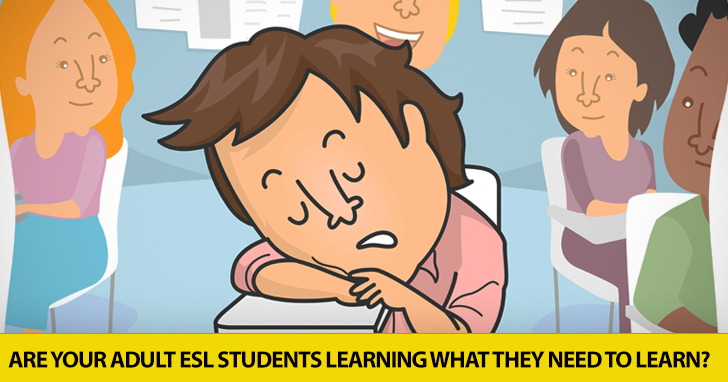Specific Needs for Specific Occupations: How to Find and Incorporate Specific Vocabulary and Adapt Your ESL Material


If you don't know the answer to this, you should. Understanding what motivates your students to learn a second language is, in fact , essential to the teacher. When adult students take ESL lessons, whether they are private or in a group, they do so with a specific goal or objective in mind. They might want to improve their fluency in order to participate in meetings. They might need to work on writing skills for emails, presentations or reports. Others desperately need to improve their listening comprehension skills in order to understand their counterparts or clients in other countries. The list goes on and on.
Gathering information about our students' learning needs and wishes is important for success. The process also sometimes involves looking at the expectations and requirements of other people who may be affected by the program (for instance, students' family or employers) and not the student per say.
It's all about the information. It can help you define program goals which can become specific teaching objectives. With these objectives, you can find the needed content to develop lesson plans, materials, activities, assignments and tests. In essence, it serves to help you understand the purpose of your language program.
A needs analysis is an amazing way to customize our lessons, too. It's also a great way to make our students to feel that their needs and opinions are important and that these needs will be met at some point in the program.
Surveys and a questionnaires are a great way to start your course. After they are handed out, they will literally do all the work for you. Let's take a look at the actual questions you can use to get to know your students' needs.
It is extremely important to know how long a student has been studying English. This will give you an idea of how important/ necessary it is for them. Also, it never hurts to get an idea of how the have been studying. For example, how many times they have started and quit courses or completed them. Also, or to know the frequency of the lessons.
All of our students have difficulties with something. Everything from having trouble with the use of structures to understanding when someone is talking to them are very common situations in which our beloved students need help. It comes in handy to know this from the start.
This question is crucial because it goes to the heart of the survey. Here they need to tell you why they are taking the course. They'll tell you what has brought them to your door step. As we mentioned before there are many motivations for adult students. Most are work related but there could be more.
This question is very specific. It aims to get information about types of situations the student might need to face. They might answer something like, I need to take/place orders, attend meetings, write emails. Where the second question is concerned it has to do more with interests like, I need to make reservations, buy something in a store, ask for information during trips.
Some things are harder for some students than others. Students can often find one or two skills very challenging. It is important to know where the challenges lie as soon into the program as possible. That can give you the insight needed to understand how you can help them
* Business/work related: The office, contacting clients, meetings, company organization, status reports, performance reports.
* General: My home, family, the city, daily activities (routine), news events, health, social events
It goes without mention that you can add to these topics or replace them with others that are appropriate to their level. Knowing which topics are the most important can help you better plan the topics and subtopics for each lesson
All you want to know here is how they felt learning English before. The idea is to guide them to general comments and not to criticize their previous teacher. That would be unprofessional. What you want to find out is how their general experience was and what things weren't useful to them. For instance, perhaps a lot of writing was done in class and your student is looking for a course where he or she can do more speaking. You can also learn specific things about what your student likes or doesn't like. Once a student told me he felt very uncomfortable because he was asked a lot of personal questions during his previous course. It was very important to learn this about my student because I was able to understand what to avoid.
We need to find out what they are and adapt our lessons to meet those needs. If you don't do this , you risk having students who